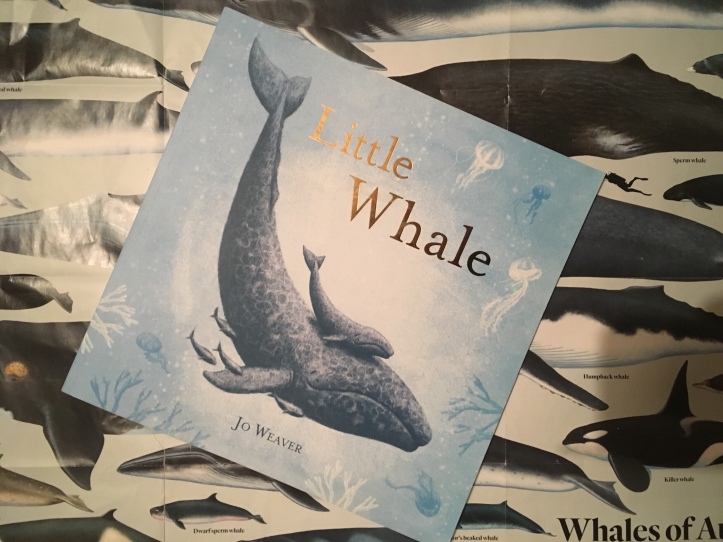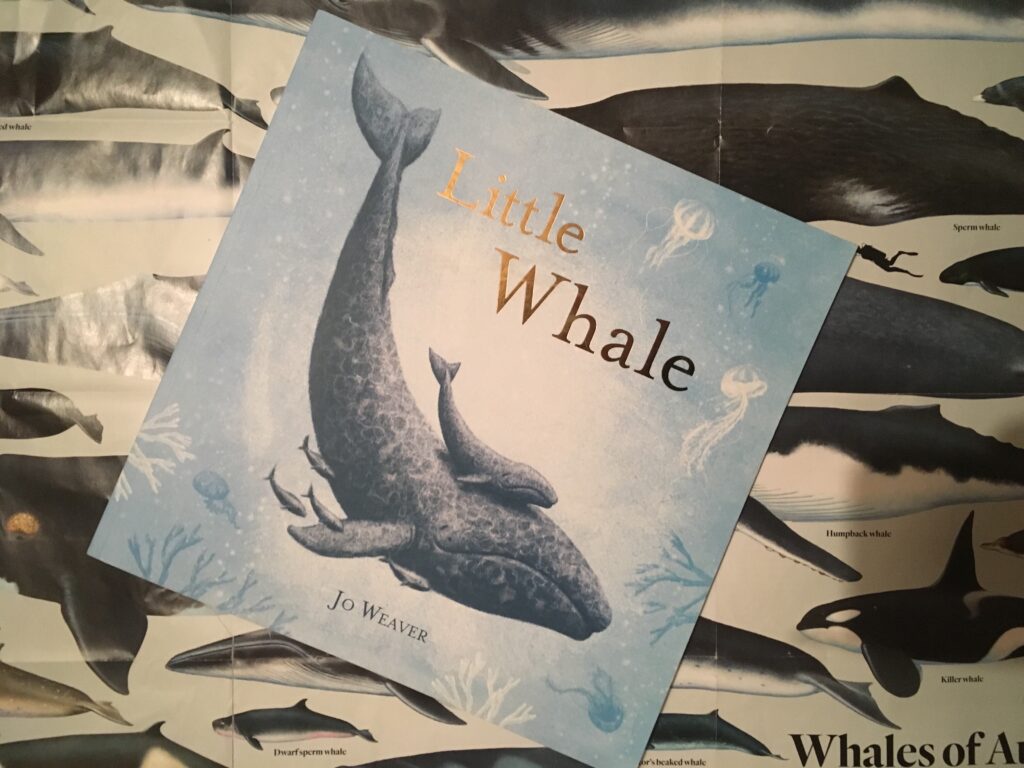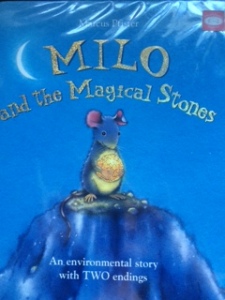“Is this home?” asked Little Whale. “No, we’ve still got a long way to go,” said Grey Whale.

Deep blue ocean, gentle waves rocking and peacefulness oozes out of this book.
Little Whale, written and illustrated by Jo Weaver, is a beautifully told story about a baby whale and the journey north it is taking with its mother.
Grey Whales migrate nearly 20 000 km on a yearly basis as they move back and forth between the cool and warm waters in order to find food and safety.
As we see and read about this migration we watch the baby tire, the dangers lurking in the depths and the beauty of the sea forest below.
The role of the mother whale is so important for her baby’s survival and despite the length they have to travel, albeit a little bit slower than she would normally take, she still sticks by her child ensuring they make it safely to the north.
As you read this story you will find yourself slow down.
The journey of a mother with her calf is a slow and careful one and the way Jo Weaver has told this story ensures we understand how long that journey is.
The illustrations in Little Whale are created in charcoal and really add to the atmosphere of the water. The gentle sketches of the water ebbing and flowing, sea grass swaying and fish circling give off a peaceful sense of life at sea.
Little Whale is a gorgeous story about the migration of whales, the love of parents and life living in the ocean.
It would be a great book to springboard into life cycles, animal studies of migration, animal conservation and ocean awareness.
How can I use this book at home or in the classroom?
- Plot on a map the different routes whales around the world take in order to migrate to different feeding and breeding grounds.
- How many different types of whales are there in the world and do they all have the same life cycle?
- What type of habitat do whales need for optimum development? Explore why they move and why the places they go to are so important.
- How are humans having an impact on whales and their migration? On their breeding or feeding grounds?


